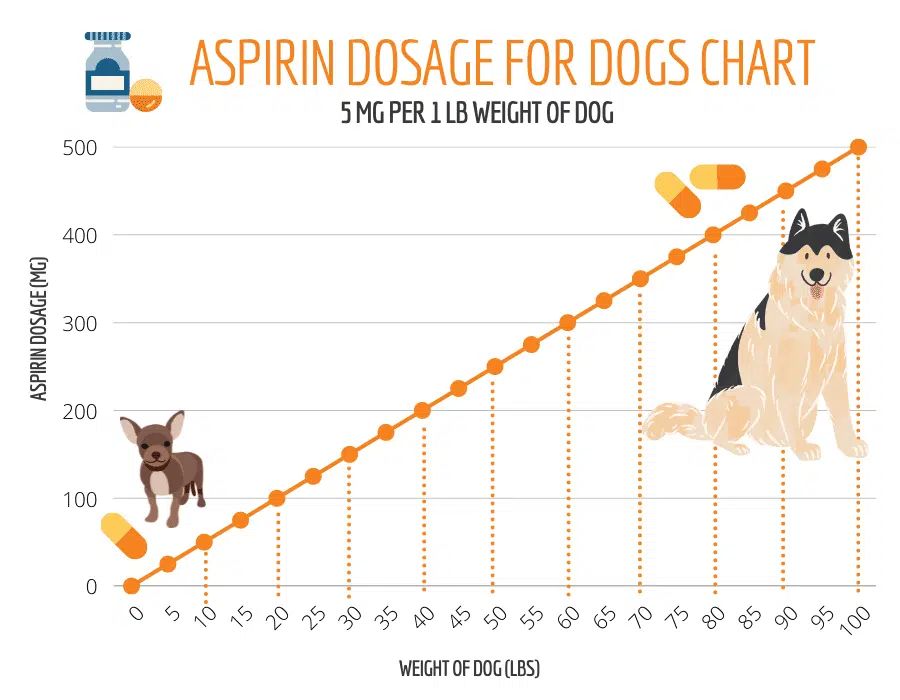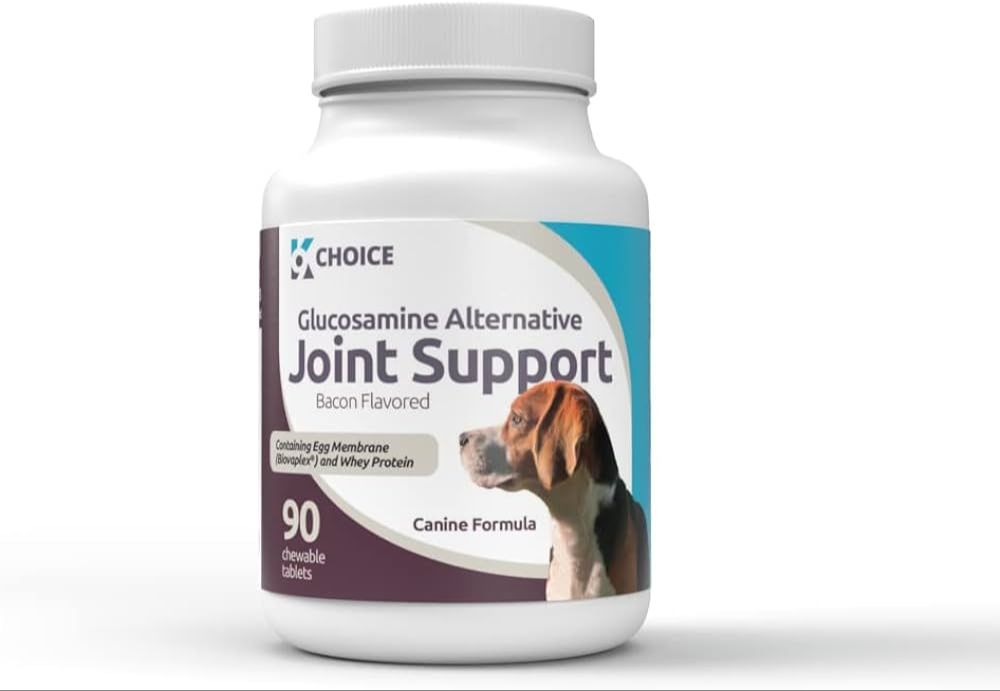Introduction
Prescription drugs can often help our canine companions in times of need, whether for pain relief, anxiety, or other conditions. However, many dog owners wonder if over-the-counter medications formulated for humans are safe for their pets as well. Aspirin is one of the most common over-the-counter medications that dog owners consider giving to their dogs. According to a survey by the American Pet Products Manufacturers Association, over 75% of dog owners have given human medications like aspirin to their pets. But is this practice safe or recommended? Let’s take a closer look at whether dogs can take human aspirin daily.
What is Dog Aspirin?
Dog aspirin contains the active ingredient acetylsalicylic acid, which is also found in aspirin formulated for human use. The main difference between dog aspirin and human aspirin is the dosage – dog aspirin contains lower dosages that are safer for canine consumption. For example, a standard adult human aspirin tablet contains 325 mg of acetylsalicylic acid, while a typical dog aspirin tablet contains 81 mg or less.
While the active ingredients are the same, dog aspirin tablets are usually buffered or coated to reduce stomach upset and irritation, making them gentler on a dog’s digestive system. According to veterinarians, plain or uncoated aspirin tablets formulated for humans can still be used for dogs if given at the proper lower dosage. However, coated aspirin tablets made specifically for canine use are recommended when available.
Benefits of Short-Term Use
Aspirin can provide some benefits for dogs when used for a short period of time under veterinary guidance. The main benefits of short-term aspirin use in dogs are:

- Pain relief – Aspirin blocks prostaglandins which are chemicals that cause inflammation and pain. This provides temporary pain relief from injuries, arthritis, and postoperative pain. However, other NSAIDs like carprofen are often preferred for treating chronic pain in dogs (Source).
- Fever reduction – Aspirin helps lower body temperature which can be beneficial when a dog has a fever. It should only be used for fever under veterinary supervision (Source).
- Arthritis – Low-dose aspirin may provide some relief from arthritis pain and inflammation when given short-term. However, other NSAIDs are usually safer and more effective for long-term arthritis treatment (Source).
Overall, aspirin has a place in veterinary medicine but is not used as extensively as in human medicine due to the increased risks of side effects in dogs. It should only be given short-term under veterinary supervision.
Risks of Long-Term Use
While dog aspirin can provide some benefits for short-term use, regular or long-term administration comes with significant risks. The most concerning side effects of extended aspirin use in dogs include:
- Stomach ulcers: Aspirin can irritate the digestive tract and cause ulceration of the stomach lining, especially when given for weeks or months at a time. Stomach ulcers lead to vomiting, diarrhea, loss of appetite, and abdominal pain in dogs (Source 1).
- Kidney and liver damage: The metabolites of aspirin get filtered through the kidneys and liver, overburdening these organs with repeated exposure over time. Signs of kidney and liver disease include increased thirst, urination, vomiting, and jaundice (Source 3).
- Bleeding problems: Aspirin thins the blood and affects platelet function. This can lead to bruising, bleeding gums, nosebleeds, and bloody stools when used long-term in dogs (Source 2).
Due to these serious risks, veterinarians caution against giving aspirin to dogs on a regular basis for more than a few days at a time unless specifically prescribed for a medical condition.
Proper Dosage
When giving aspirin to dogs, it’s crucial to administer the proper dosage based on the dog’s weight. Most aspirin products will provide dosage instructions on the label or packaging. A general rule of thumb is to give dogs 10-25 mg of aspirin per pound of body weight every 8-12 hours.
For example, for a 40 pound dog, a typical dose would be a 325 mg aspirin tablet given every 12 hours. Always double check the product labeling and consult your veterinarian if unsure about the correct dosage. Overdosing on aspirin can be toxic for dogs.
Some dog owners find it helpful to use a dog aspirin dosage chart based on weight as a reference when dosing. It’s also important to use an appropriate aspirin product formulated for dogs and not human aspirin, which is often more concentrated.

Administering Dog Aspirin
It is important to administer dog aspirin properly to ensure your dog takes the full dose. Here are some tips for giving your dog aspirin:
– Give aspirin with food. Giving aspirin on an empty stomach can cause stomach upset. Mix the pill in with a small amount of wet dog food or peanut butter to disguise the taste and help your dog swallow it.
– If giving a tablet, try crushing it up first and mixing with food. Tablets can be difficult for dogs to swallow whole.
– Use a pill dispenser or your hand to place the pill far back on your dog’s tongue to trigger swallowing. Hold their mouth closed and gently stroke their throat until they swallow.
– If your dog spits out the pill, try giving it again with a stronger tasting food like sardines in oil or a food they get excited for, like chicken.
– Don’t hesitate to ask your vet for a demonstration on how to properly pill your dog if you are struggling. They can provide hands-on guidance for your specific dog.
Be patient, yet persistent when administering aspirin. Make sure your dog swallows the complete dose for the medication to be effective. If you continue having trouble, ask your vet about liquid or chewable aspirin options for your dog.
Signs of Overdose
One of the main risks of giving a dog too much aspirin is overdose. An overdose of aspirin can cause serious and even fatal side effects in dogs. Some of the most common signs of aspirin overdose in dogs include:
Vomiting – One of the earliest signs of aspirin toxicity is vomiting. The dog’s vomiting may initially contain food or bile, but can become bloody as the toxicity increases.
Diarrhea – Along with vomiting, dogs may develop diarrhea from aspirin overdose. The diarrhea may be watery or contain blood.
Lethargy – As the toxicity progresses, dogs may become increasingly lethargic and weak. They may be reluctant to move and seem very sleepy.
Appetite loss – Aspirin overdose typically causes a loss of appetite in dogs. They may refuse food and treats that they would normally readily consume.
Other signs of aspirin toxicity can include panting, seizures, coma, and ultimately death. It’s critical to seek emergency veterinary care immediately if an overdose is suspected. The longer the overdose goes untreated, the poorer the dog’s prognosis will be.
According to https://zkmu.muviet.com/new/17600-aspirin-100-mg-overdose, the most important part of treating an aspirin overdose is contacting a vet right away for guidance. They can advise on inducing vomiting and give the dog medications to try to counteract the overdose.
Alternatives for Long-Term Use
While dog aspirin can be used safely short-term, alternatives should be considered for long-term pain relief to avoid potential side effects. Some options include:

Other over-the-counter pain medications formulated specifically for dogs, such as Vetnique Labs Pain Relief Chews, contain active ingredients like Yucca schidigera and boswellia serrata to reduce inflammation and joint pain. These can often be used daily with veterinarian approval.
Prescription medications like carprofen or tramadol may be options for dogs with more severe chronic pain. These should only be given under the guidance of a veterinarian, require a prescription, and are dosed based on your dog’s specific needs.
Supplements containing glucosamine, chondroitin, omega-3 fatty acids, turmeric, and other anti-inflammatory ingredients can also help manage arthritis and joint issues when used routinely. Consulting with your vet on appropriate supplements for your dog is recommended.
Acupuncture, massage therapy, swimming/hydrotherapy, and other alternative treatments may also help dogs with chronic pain. An integrative approach under veterinary supervision can provide the most relief.
The key is working with your vet to find the safest, most effective pain management regimen for your dog’s needs long-term without relying solely on OTC human medications like aspirin.
When to Call the Vet
Dog owners should call their veterinarian right away if their dog experiences any concerning side effects after being given aspirin, such as:
- Vomiting or diarrhea
- Lethargy
- Loss of appetite
- Rashes or hives
- Bruising or bleeding
- Stomach pain
It’s also important to contact your vet if you have any questions or concerns about the proper dosage of aspirin for your dog. Providing too much aspirin can lead to serious complications like internal bleeding or organ damage. Your vet will be able to advise you on the appropriate dose for your individual dog based on factors like their size, medical conditions, other medications, etc.

Do not try to estimate the dosage yourself – always consult your vet first. Calling them promptly when side effects occur or if you have dosage questions allows the vet to provide guidance and potentially adjust medications to avoid further problems.
Conclusion
While dog aspirin can provide short-term relief of pain and inflammation for your dog, daily use carries significant risks. Long-term use can lead to gastrointestinal ulcers and bleeding, liver and kidney damage, and even anemia in some cases. Follow your veterinarian’s guidance for proper dosage and administration to reduce these risks.
When administering dog aspirin, be sure to give the correct low dosage based on your dog’s weight, administer with food, and monitor your dog for any signs of adverse reaction. Never exceed the recommended dosage. Consult with your vet about alternatives like nutritional supplements or prescription NSAIDs for long-term pain management.
Your veterinarian is your best resource for determining if and when dog aspirin is appropriate for your pet. Contact them if your dog requires daily pain relief so they can recommend the safest long-term treatment plan.